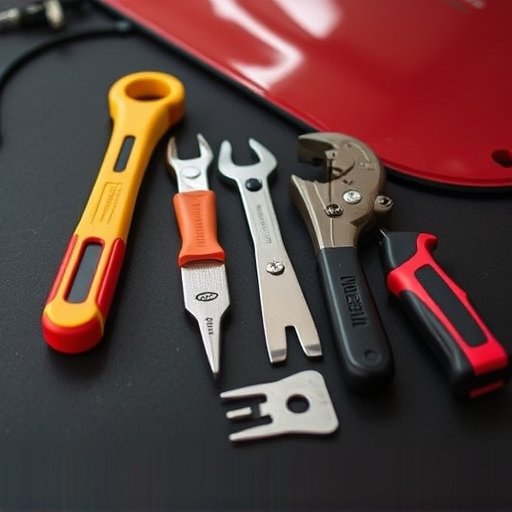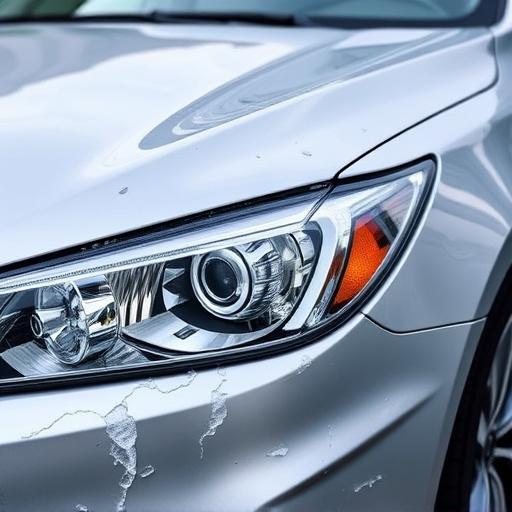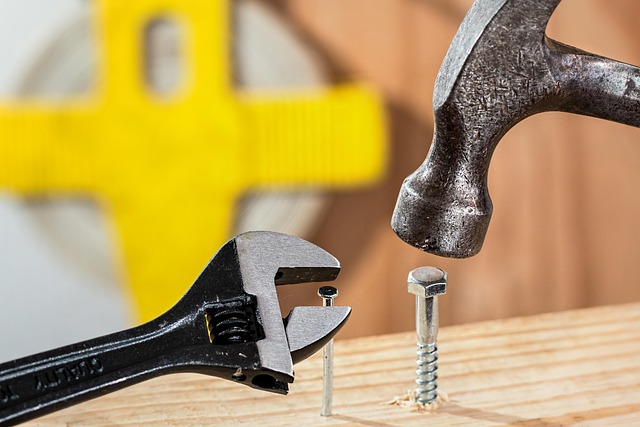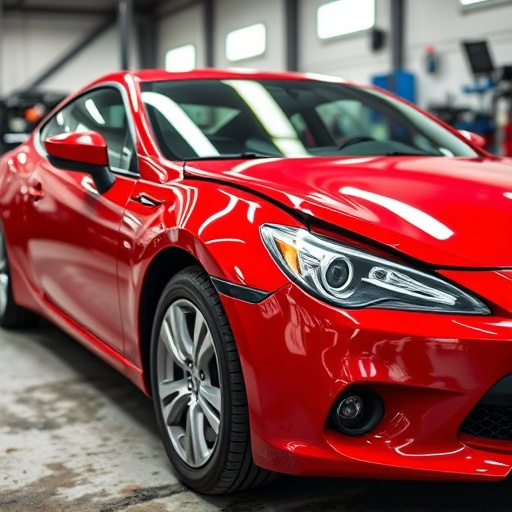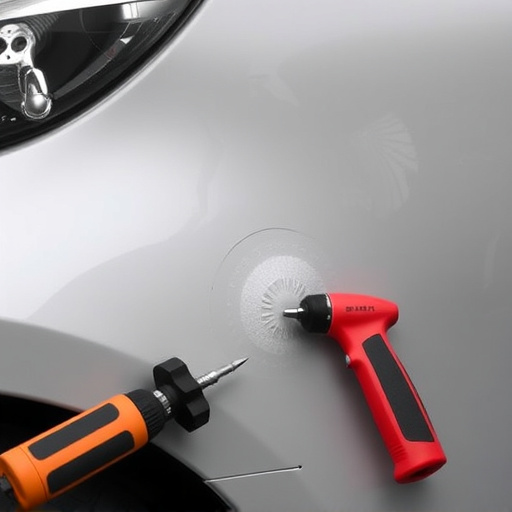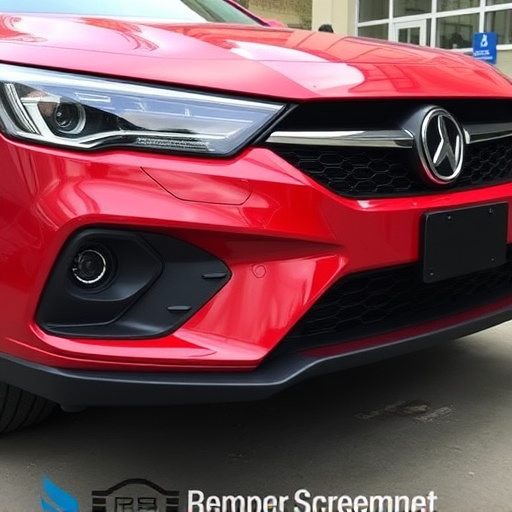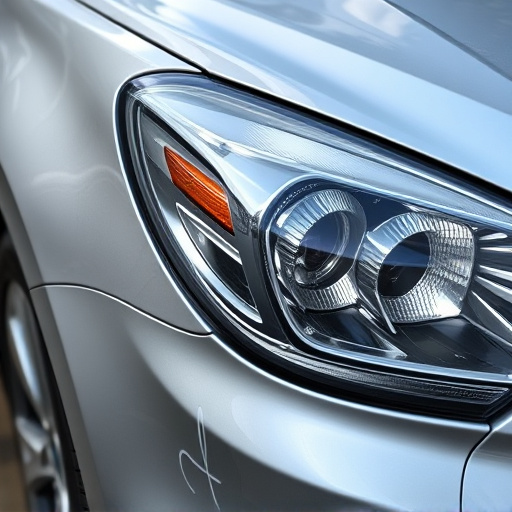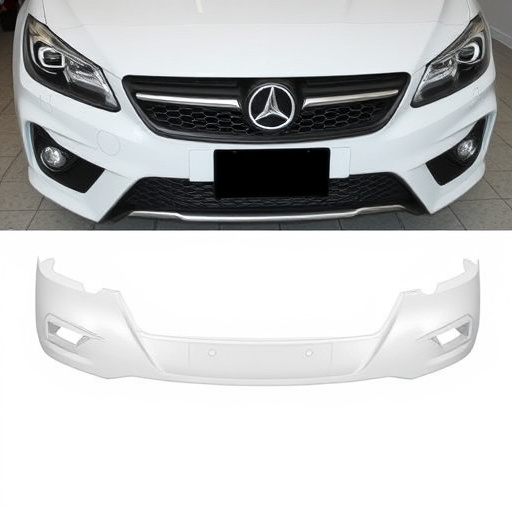The automotive industry's shift towards eco-friendliness has dramatically transformed advanced frame repair techniques. Manufacturers and consumers are increasingly conscious of environmental impacts, driving innovation in sustainable repair methods like recycled materials, advanced composites, and 3D printing for lightweight components. These developments reduce carbon footprints while offering cost-effective solutions, appealing to both manufacturers and environmentally conscious consumers. Advanced frame repair is evolving with robotic and AI technologies, advanced composites, and lightweight metals, enabling precise measurements, reduced waste, and faster repairs. This transformation positions the industry to lead sustainable auto maintenance practices, ensuring a greener future.
The automotive industry is undergoing a significant transformation driven by sustainability and technological advancements. As consumers demand eco-friendly practices, traditional frame repair methods are evolving rapidly. This article explores emerging trends shaping the future of advanced frame repair. We delve into the shift towards sustainable solutions, the integration of digital technology in workshops, and the rise of mobile repair services enabled by remote work. Discover how these trends revolutionize precision restoration, reduce environmental impact, and enhance efficiency in the ever-changing landscape of automotive care.
- The Shift Towards Eco-Friendly and Sustainable Frame Repair
- – Exploring the growing demand for environmentally conscious practices in the automotive industry
- – Technologies and materials revolutionizing sustainable frame repair
The Shift Towards Eco-Friendly and Sustainable Frame Repair

In recent years, the automotive industry has witnessed a significant shift towards eco-friendly and sustainable practices, and advanced frame repair is no exception. Consumers and manufacturers alike are becoming increasingly conscious of the environmental impact of traditional car restoration and bodywork services. This change in perspective is driving innovation in advanced frame repair techniques that prioritize sustainability without compromising quality or structural integrity.
One notable trend is the adoption of eco-friendly materials and technologies, such as recycled metal and advanced composite materials, which reduce the carbon footprint associated with Mercedes Benz repair and other car restoration processes. Additionally, researchers are exploring innovative methods like 3D printing to create precise and lightweight components, minimizing waste and enhancing efficiency in car bodywork services. These developments not only contribute to a greener environment but also offer cost-effective solutions for both manufacturers and consumers interested in sustainable advanced frame repair.
– Exploring the growing demand for environmentally conscious practices in the automotive industry

The automotive industry is undergoing a significant transformation as consumers increasingly demand environmentally conscious practices. This shift has profound implications for advanced frame repair services, pushing them to adopt more sustainable methods and materials. The traditional use of metal in auto collision centers and car collision repair processes is being re-evaluated, with a focus on reducing waste and minimizing the carbon footprint. Innovative techniques, such as using lightweight composite materials and recycling programs, are gaining traction.
These changes reflect a broader trend towards green practices across various sectors, including auto bodywork. As the industry moves towards more eco-friendly solutions, advanced frame repair specialists must adapt to meet these new demands. This not only involves adopting sustainable technologies but also staying attuned to regulatory updates and consumer preferences. Embracing these trends ensures that auto collision centers can remain competitive while contributing to a greener future for the automotive sector.
– Technologies and materials revolutionizing sustainable frame repair
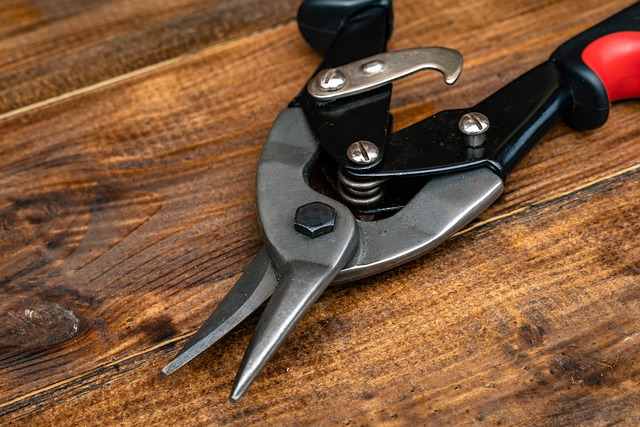
The landscape of advanced frame repair is undergoing a metamorphosis driven by innovative technologies and materials that prioritize sustainability. New advancements in robotics and AI are enabling precise measurements and seamless panel alignment, reducing waste and expediting the repair process. These breakthroughs not only enhance efficiency but also contribute to eco-friendlier auto maintenance practices.
Furthermore, the integration of advanced composites and lightweight metals is reshaping car damage repair. These materials offer superior strength-to-weight ratios, making them ideal for modern vehicle designs while reducing overall environmental impact. As the industry continues to evolve, these trends promise a future where auto detailing and frame repair go hand in hand with sustainability, offering customers not just restored vehicles but also those that are more eco-conscious.
As the automotive industry shifts towards sustainability, advanced frame repair techniques are undergoing a transformative journey. The demand for eco-friendly practices is driving innovation in materials and technologies, paving the way for more efficient and environmentally conscious vehicle restoration. By embracing these industry trends, repair shops can stay ahead of the curve, offering customers not only superior vehicle functionality but also contributing to a greener future.

